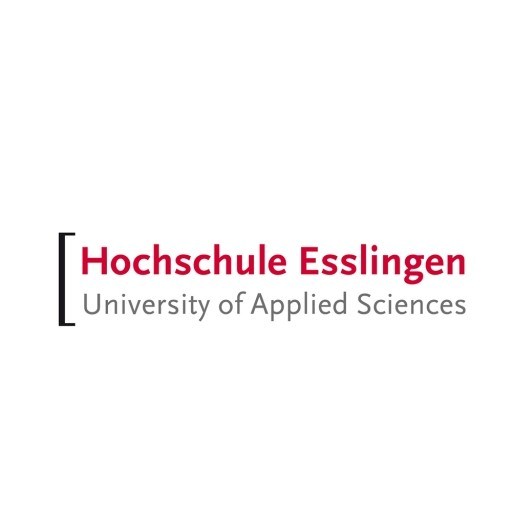Photos of university / #uppsalauniversity
Embedded Systems at Uppsala University is a comprehensive and highly specialized master's degree programme designed to equip students with advanced knowledge and practical skills in the development, design, and application of embedded systems. Embedded systems are computing systems embedded within larger devices and systems, enabling functionalities across a wide range of industries, including telecommunications, automotive, healthcare, consumer electronics, and industrial automation. This programme offers a thorough education in both the theoretical foundations and practical aspects of embedded systems engineering, including hardware architecture, real-time operating systems, software development, and system integration.
Students will explore core topics such as embedded hardware design, embedded software development, real-time systems, sensor and actuator integration, and power management. The programme emphasizes a multidisciplinary approach, combining aspects of electrical engineering, computer science, and software engineering to prepare graduates for complex engineering tasks in the embedded domain. Throughout the studies, students have opportunities to work on real-world projects and collaborate with industry partners, gaining valuable hands-on experience that bridges theoretical knowledge and practical application.
The programme also highlights emerging trends and technologies in the field of embedded systems, such as Internet of Things (IoT), embedded security, and low-power design, preparing students to contribute to innovative solutions in a rapidly evolving technological landscape. Students will develop critical analytical and problem-solving skills essential for designing robust, efficient, and secure embedded systems.
Career prospects for graduates of this programme are broad and promising. They often find employment in industries like automotive, telecommunications, consumer electronics, and robotics, taking roles such as embedded systems engineer, hardware designer, software developer, or system integrator. The degree also provides a solid foundation for those wishing to pursue doctoral studies or careers in research and development.
Uppsala University's strong research environment, state-of-the-art laboratories, and collaboration with industry partners ensure that students receive an education aligned with current and future industry needs. Graduates of the Embedded Systems programme will be well-equipped to become innovators and leaders in the embedded systems field, contributing to technological advancements that shape our everyday lives.
The Embedded Systems Master's Programme at Uppsala University offers an in-depth education designed to meet the growing demand for professionals skilled in designing, developing, and deploying embedded systems across various industries. The programme provides students with a comprehensive understanding of the principles and techniques necessary for creating embedded solutions that are efficient, reliable, and systemically integrated into everyday life. Throughout the course, students will explore core topics such as real-time operating systems, embedded hardware architecture, software development, and system validation, ensuring they gain both theoretical knowledge and practical skills applicable in the industry.
The curriculum is structured to include a mix of core courses, elective modules, and project work, fostering a hands-on learning environment. Students will have the opportunity to work with state-of-the-art tools and technologies, including microcontrollers, FPGA designs, and advanced debugging techniques. Emphasis is placed on developing the ability to analyze system requirements, design embedded solutions, and optimize performance and power consumption for resource-constrained environments.
In addition to technical competencies, the programme aims to cultivate project management skills, teamwork, and effective communication, preparing graduates for leadership roles in embedded systems development. The programme collaborates closely with industry partners, providing students with valuable internship opportunities and exposure to real-world challenges. Graduates of the Embedded Systems Master's Programme will be well-equipped for careers in sectors such as automotive, telecommunications, healthcare, consumer electronics, and robotics.
The education at Uppsala University is characterized by a strong research environment, with faculty members actively involved in pioneering research projects in embedded systems and related fields. Students will also have access to cutting-edge laboratories and resources to enhance their learning experience. Upon completion of the programme, graduates will have developed a solid foundation in embedded systems engineering, enabling them to contribute effectively to innovative projects and technological advancements in a rapidly evolving digital landscape.
Admission to the Master's Programme in Embedded Systems at Uppsala University requires applicants to hold a Bachelor's degree or an equivalent qualification in Electrical Engineering, Computer Engineering, Computer Science, or a closely related field. Applicants must demonstrate competency in mathematics and computer programming, typically through coursework in algorithms, data structures, and embedded systems design. Proficiency in English is mandatory, with acceptable test scores including an IELTS Overall score of at least 6.5 with no section below 5.5, or an equivalent result in TOEFL iBT with a minimum score of 90. Additional requirements may include documented experience in embedded systems development, such as projects or work experience involving microcontrollers, real-time operating systems, or firmware programming. The application process involves submitting academic transcripts, a CV, a statement of purpose outlining motivation and relevant experience, and proof of English proficiency. Uppsala University values a strong interest in the subject area, analytical skills, and the ability to work independently and collaboratively. Incomplete applications or those lacking necessary documentation will not be considered. Candidates with a background demonstrating interdisciplinary knowledge in electronics, software engineering, and hardware integration are preferred. The selection process emphasizes academic performance, relevant experience, and the motivation expressed in the statement of purpose. It is also recommended that applicants review specific course prerequisites and recommended prior knowledge on the programme webpage. The university encourages international applicants to prepare for the application timeline, which generally opens in mid-October and closes in mid-January, with decisions communicated by late spring. Applicants should ensure they meet all criteria before submitting their application to increase chances of acceptance into this competitive programme.
Financing studies at Uppsala University for the Embedded Systems master's programme can be approached through various channels, providing opportunities for both Swedish and international students. International students are encouraged to explore scholarship options, grants, and loan schemes that may be available based on their country of origin or specific eligibility criteria. Uppsala University offers several scholarship programmes, including the Uppsala University Global Scholarships, which are aimed at talented students from outside the European Union/EEA. These scholarships typically cover partial or full tuition fees and are awarded based on academic merit. Applicants must meet certain academic standards and submit a dedicated scholarship application alongside their program application.
In addition to university-specific scholarships, students can seek external funding sources such as government-funded exchange programs, national loan schemes, or private foundations that support students in pursuing technical and engineering degrees. For Swedish students, funding options primarily involve student loans and grants provided by the Swedish National Board of Student Aid (CSN). CSN offers loans and grants to cover living expenses and tuition fees for students enrolled in higher education studies at Swedish universities. International students who are citizens of the European Union or EEA countries may be eligible for some of these financial aid programs but should verify their eligibility beforehand.
Part-time work is also a feasible way to finance studies at Uppsala University. The university's location in Uppsala and proximity to Stockholm offer students opportunities for part-time employment during their studies, which can help offset living expenses. The university's Career Services provides support and guidance for students seeking part-time jobs, internships, or other employment opportunities relevant to their field of study.
Students are advised to plan their finances carefully, considering tuition fees (if applicable), living costs, insurance, and incidental expenses. While Uppsala University does not charge tuition fees to students from the EU/EEA and Switzerland, non-EU/EEA students typically pay tuition fees, which vary depending on the programme. Estimated living costs for international students encompass accommodation, food, transportation, study materials, and personal expenses, which should be budgeted accordingly.
In summary, financing studies in the Embedded Systems master's programme at Uppsala University involves a combination of university scholarships, external funding sources, government aid schemes, and employment opportunities. Early application and thorough research on available financial support are essential for securing adequate funding to complete the degree successfully.
Embedded Systems is a specialized Master's program offered at Uppsala University, designed to prepare students for advanced careers in the development, design, and analysis of embedded computer systems. This program focuses on the integration of hardware and software to create efficient, reliable, and innovative embedded solutions used in a variety of industries, including automotive, telecommunications, robotics, and consumer electronics. The curriculum combines theoretical foundations with practical applications, ensuring that graduates possess both the technical expertise and problem-solving skills necessary to tackle real-world challenges in embedded systems development.
Students in the program will study core subjects such as computer architecture, real-time operating systems, embedded hardware design, and software development for embedded environments. The program also emphasizes modern topics like IoT (Internet of Things), cybersecurity in embedded systems, and autonomous systems, reflecting current industry trends and future directions. Through coursework, laboratory work, and project-based learning, students gain hands-on experience with embedded programming languages, hardware description languages, and development tools. This practical approach ensures that graduates are capable of designing, implementing, and testing embedded solutions effectively.
The program is typically structured over two years, with coursework in the first year and a Master's thesis in the second year, allowing students to specialize further or tailor their education to specific interests within the field. Uppsala University fosters close collaboration with industry partners, providing students with opportunities for internships, industry visits, and collaborative research projects, which enhance employability upon graduation.
Admission to the program requires a Bachelor's degree in Electrical Engineering, Computer Engineering, or a related field, with a strong foundation in programming, electronics, and systems theory. Proficiency in English is also required for international students. Graduates from this program will be well-equipped to work as embedded systems engineers, hardware and software developers, system architects, or pursue PhD studies in areas related to embedded computing. The program benefits from Uppsala University’s extensive research environment and international academic network, making it an attractive choice for students aiming to advance their careers in embedded systems and related fields.










